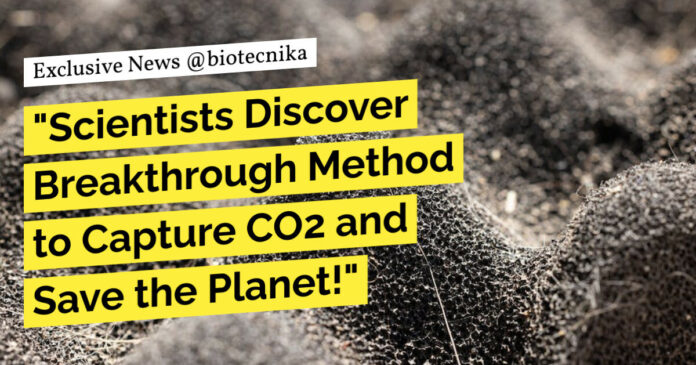THETA Cycle: A Breakthrough in Synthetic CO2 Conversion to Acetyl-CoA by Max-Planck-Institute
Synthetic Carbon Dioxide Fixation in Living Cells
Synthetic biology has the potential to revolutionize the way we capture and convert carbon dioxide (CO2) by building biochemical pathways. Researchers at the Max-Planck-Institute for Terrestrial Microbiology have made significant progress in this field. They have developed a synthetic CO2 fixation pathway called the THETA cycle that directly converts CO2 into acetyl-CoA, a central building block in cellular metabolism. In this article, we will explore the researchers’ findings and the potential implications of synthetic CO2 fixation in living cells.
Understanding the Importance of Synthetic Carbon Dioxide Fixation:
Capturing and converting CO2 is crucial for addressing the climate emergency. Synthetic biology offers an opportunity to develop more efficient CO2 fixation pathways than those found in nature. However, implementing these new pathways in different systems, both in vitro and in vivo, remains a significant challenge.
The THETA Cycle: A Pathway for Synthetic Carbon Dioxide Fixation:
The researchers at the Max-Planck-Institute for Terrestrial Microbiology designed and constructed the THETA cycle. This cycle involves multiple biocatalysts and utilizes two CO2-fixing enzymes, crotonyl-CoA carboxylase/reductase, and phosphoenolpyruvate carboxylase, to convert CO2 into acetyl-CoA.
Acetyl-CoA: A Versatile Building Block:
Acetyl-CoA is a crucial metabolite found in almost all cellular pathways. It serves as the building block for various biomolecules, including biofuels, biomaterials, and pharmaceuticals. By converting CO2 directly into acetyl-CoA, the THETA cycle has the potential to enable the production of valuable compounds from CO2, opening up new possibilities in biotechnological applications.
Developing a Modular Approach:
The researchers approached the implementation of the THETA cycle in a modular manner. By dividing the cycle into three modules, they successfully integrated each module into E. coli bacteria. This modular approach allows for step-by-step incorporation of the cycle into the cell’s natural metabolism, making it easier to synchronize with existing processes.
Challenges and Future Directions:
While the researchers have demonstrated the functionality of individual modules, closing the entire THETA cycle remains a significant challenge. Synchronizing all 17 reactions with E. coli’s natural metabolism, which involves hundreds to thousands of reactions, requires further refinement. However, the researchers believe that even partial implementation of the THETA cycle in living cells is a crucial proof-of-concept for the field of synthetic biology.
Potential Implications and Conclusion:
The THETA cycle has the potential to become a versatile platform for producing valuable compounds directly from CO2. It offers a promising pathway for synthetic biology, enabling the development of complex CO2 fixation pathways in cell factories. By reprogramming cellular metabolism, scientists can create a synthetic autotrophic operating system for cells, paving the way for more sustainable and environmentally friendly processes.
In conclusion, the Max-Planck-Institute for Terrestrial Microbiology researchers’ development of the THETA cycle represents a significant step towards synthetic carbon dioxide fixation in living cells. This breakthrough offers hope for addressing the climate emergency and driving advancements in biotechnology. Further research and optimization are required to realize the potential of synthetic CO2 fixation fully.
Keywords: THETA Cycle: A Breakthrough in Synthetic CO2 Conversion to Acetyl-CoA by Max-Planck-Institute, synthetic carbon dioxide fixation, THETA cycle, CO2 capture, synthetic biology, acetyl-CoA, modular implementation, cell factories, sustainable processes, biotechnological applications.
- SEO Powered Content & PR Distribution. Get Amplified Today.
- PlatoData.Network Vertical Generative Ai. Empower Yourself. Access Here.
- PlatoAiStream. Web3 Intelligence. Knowledge Amplified. Access Here.
- PlatoESG. Carbon, CleanTech, Energy, Environment, Solar, Waste Management. Access Here.
- PlatoHealth. Biotech and Clinical Trials Intelligence. Access Here.
- Source: https://www.biotecnika.org/2024/01/theta-cycle-a-breakthrough-in-synthetic-co2-conversion/


